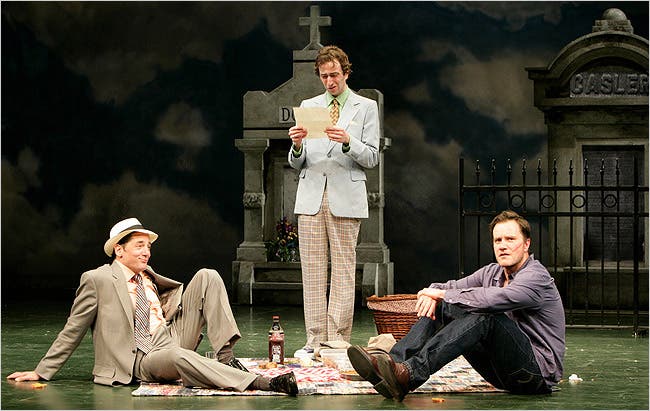Henley’s play Ridiculous Fraud climaxes with a family picnic in a cemetery. “Picnics in the graveyard! A great New Orleans tradition,” says Uncle Baites, “Why weep over the dead? We come, we go. We come, we go!”
It is the annual Clay family Easter Sunday reunion, and they gather at the family tomb, which in New Orleans is above ground. Since the family seldom meets to talk, a picnic offers a chance for communicating; but, it is never without tension: as Andrew explains, “My brothers usually come by to visit on Easter. Uncle Baites brings a picnic. We don’t talk often. This is the way the family has its meetings, even though it may be once a year.”
There is a patina of family affection: they share fried chicken, fruit pies, cupcakes, whiskey, and Cokes, but eaten without joy. It is a death picnic, Henley’s metaphor for the breakdown of the fundamental rule that families are happy and those happy families will have happy picnics. This picnic demonstrates how separate each member of the Clay is from one another.
See Beth Henley. Ridiculous Fraud. New York: Dramatists Play Service Inc., 2006. Also Constance Urdang’s “Picnic in the Cemetery” and Nikka Hazelton’s “Picnic a Deux in a Graveyard.”
Featured Image: A reunion of family misfits at a cemetery picnic on Easter Sunday. T. Charles Erickson. The McCarter’s Berlind Theatre production

